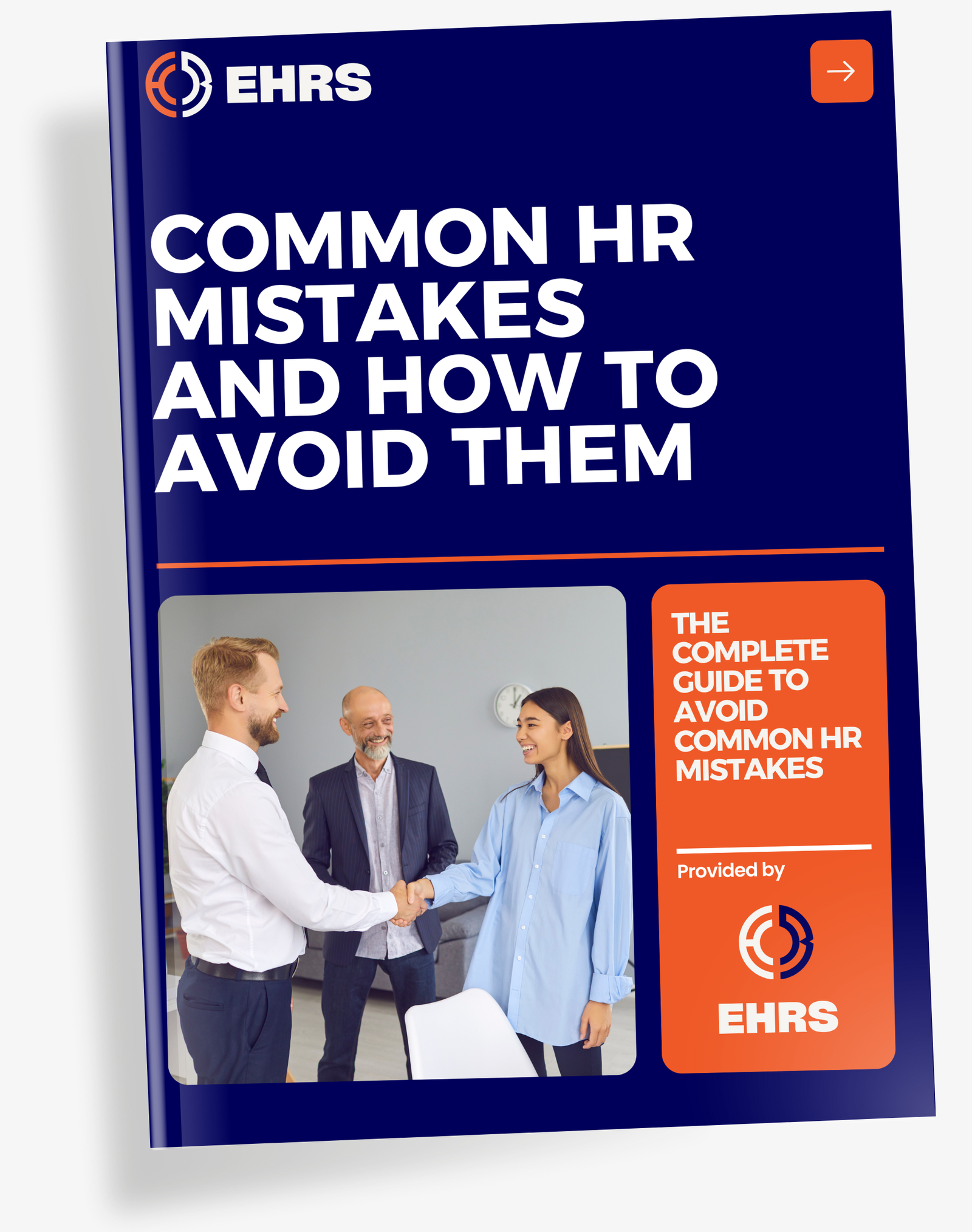Struggling with payroll in the Netherlands? Complex regulations, strict deadlines, and compliance risks often overwhelm businesses, especially foreign employers.
This comprehensive guide demystifies payroll in the Netherlands, offering a systematic approach to employer registration with the Dutch Tax Authority (Belastingdienst), monthly tax filings, and adherence to labor laws.
Dive into actionable insights on navigating progressive wage tax rates (up to 49.50%), optimizing employee benefits like the 30% ruling for skilled migrants, and avoiding penalties for late payments (3% interest on overdue amounts).
Explore critical elements—from 70% sick leave compensation to 8% holiday allowances—and discover how to streamline payroll through in-house systems or specialized partners while ensuring seven-year record-keeping compliance.
Essential Obligations for Setting Up Payroll in the Netherlands
Establishing payroll in the Netherlands demands strict adherence to local regulations. Non-compliance can lead to fines, operational delays during audits, and reputational damage. Let’s break down the critical requirements for businesses operating in this jurisdiction.
Employer Registration: The First Crucial Step
Before hiring, businesses—including foreign entities—must register with the Dutch Tax Authority (Belastingdienst) to obtain a payroll tax number (loonheffingennummer). This fundamental obligation ensures compliance with tax and social security frameworks. Foreign companies establishing a local entity must also register with the Dutch Chamber of Commerce (KVK). Without these steps, legal wage processing is impossible, exposing businesses to immediate penalties and delayed hiring processes.
The Dutch Payroll Cycle and Reporting Duties
Payroll processing follows a monthly cycle. Employers must submit tax returns electronically and settle wage tax and social security contributions by the last day of the month following the pay period. Late declarations incur a €68 fine, while delayed payments attract a 3% penalty (capped at €5,514). These key compliance factors demand systematic tracking. Electronic filing via Belastingdienst’s portal is mandatory, requiring precise calculations for income tax (progressive rates up to 49.5%) and social security contributions like the 27.65% national insurance premium. Automated systems or expert payroll providers become essential for meeting these demands.
Record-Keeping and Compliance Requirements
Maintaining payroll records for seven years is a legal requirement. The Dutch government mandates meticulous documentation for transparency and audit readiness. Critical components include:
- Employer Registration: Mandatory registration with official government resources to obtain a payroll tax number.
- Monthly Declarations: Electronic submission of payroll tax returns without exception.
- Timely Payments: Meeting deadlines to avoid penalties.
- Record Retention: Preserving all documentation for statutory audits, including payslips, tax forms, and social security records.
- Payslip Provision: Delivering detailed, compliant payslips that outline gross salary, deductions, and net income.
These essential payroll obligations form the backbone of Dutch labor compliance. Records must be in Dutch or English, stored digitally or physically. Non-compliance risks financial penalties and reputational damage during inspections, emphasizing the need for robust administrative practices. For instance, incorrect payslip details can trigger fines from the Dutch Tax Authority, while incomplete records during audits may lead to back-payments of taxes or benefits.
A breakdown of taxes and contributions for payroll in the netherlands
Understanding payroll mechanics in the Netherlands requires clarity on how taxes and contributions are distributed between employers and employees. This section demystifies the core components, ensuring businesses and professionals navigate compliance efficiently.
Employee deductions: Wage tax and national insurance
Employees in the Netherlands face two primary deductions: wage tax and national insurance contributions. The wage tax operates on a progressive scale, with rates of 37.1% for incomes up to €68,507 and 49.50% beyond this threshold in 2021. These rates inherently include national insurance contributions totaling 27.65% of gross income, covering:
- AOW (state pension)
- Wlz (long-term care)
- Child benefits
These deductions ensure comprehensive social security coverage while maintaining fiscal equity.
Employer contributions: Employee insurance and healthcare
| Contribution Type | Paid By | Purpose | Key Details (Example Rate) |
| Wage Tax (Loonheffing) | Employee | Income tax | Progressive rates (e.g., 37.1% / 49.50%) |
| National Insurance (Volksverzekeringen) | Employee | Basic state pension, long-term care, child benefit | Included in the wage tax rate (e.g., 27.65%) |
| Employee Insurance (Werknemersverzekeringen) | Employer | Unemployment, sickness, disability benefits | Rates vary (e.g., 2.94% for permanent contracts) |
| Healthcare Insurance Act (ZVW) | Employer | Contribution to the national healthcare system | Income-dependent rate with a cap (e.g., 7.0% up to a max salary) |
Employers shoulder employee insurance contributions for unemployment (WW, 2.94% for permanent contracts) and healthcare (ZVW, 7% in 2021 capped at €58,311). These obligations highlight the financial commitment required to maintain a compliant workforce, with non-compliance risking substantial penalties.
The 30% ruling: A key tax facility for skilled migrants
The 30% ruling stands as a cornerstone for attracting international talent. This facility allows employers to offer 30% of gross salary as a non-taxable allowance, covering expatriation costs. Key features include:
- Eligibility for highly skilled migrants with a minimum salary of €46,660 (2025)
- Duration capped at five years, with transitional rules for pre-2024 applicants
- Exemption from Dutch tax on the allowance, though standard income tax applies to the remaining 70%
For specialized payroll providers, this ruling exemplifies how strategic tax planning can enhance global talent acquisition. Further details on taxation rates across Europe help contextualize the Netherlands’ competitive edge in workforce management.
Specialized payroll providers offer tailored guidance for leveraging this facility effectively.
Key Labor Laws Influencing Payroll in the Netherlands
Wages, Working Hours, and Contracts
The Netherlands enforces strict regulations on wages, working hours, and employment contracts to ensure fair labor practices. The minimum wage in 2025 is set at 14.40 EUR per hour for employees aged 21 and older, adjusted biannually. For example, a full-time worker (36 hours weekly) earns a gross monthly salary of 2,255.04 EUR before taxes.
Full-time employment typically ranges between 36–40 weekly working hours. Employees cannot exceed 60 hours per week, with daily limits and mandatory rest periods. Employers must specify contract types (fixed-term or indefinite) on pay slips. Fixed-term contracts cannot exceed three consecutive agreements or three years without conversion to permanent status under the “chain rule” (Article 7:668a of the Dutch Civil Code).
Statutory Leave and Employee Benefits
Statutory leave entitlements directly impact payroll calculations. Employers must account for these mandatory benefits:
- Annual Leave: A minimum of 20 days per year for full-time employees (or four times weekly hours), with 25 days being common. Unused days can be carried over for six months but cannot be monetized.
- Holiday Allowance (Vakantiegeld): A mandatory 8% of annual gross salary, paid in May or June. This ensures employees have financial flexibility for vacations.
- Sick Leave: Employees receive at least 70% of their last-earned salary for up to 24 months. Employers must maintain payments during the first year and may adjust for minimum wage compliance.
- Maternity and Paternity Leave: 14–16 weeks of fully paid maternity leave and one week of paid paternity leave, with an option for five additional weeks at 70% pay. These provisions ensure work-life balance for new parents.
Termination and Transition Payment
Terminating employment contracts in the Netherlands requires adherence to strict legal frameworks. Employers typically need authorization from the Employee Insurance Agency (UWV) or a court, except in cases of mutual agreement, probation periods, or gross misconduct. The transition payment (transition payment) is a statutory severance package calculated based on tenure and salary, ensuring financial security for departing employees.
Employers must integrate these requirements into payroll systems while maintaining compliance with labor laws. For streamlined HR policy implementation, consult clear human resources policies that align with Dutch regulations.
Managing and optimizing your payroll in the netherlands
Understanding Dutch payroll mechanics and management options empowers businesses to maintain compliance while maximizing efficiency. This section explores payslip components and strategic payroll decisions.
From gross to net: Demystifying the dutch payslip
Calculating employee compensation in the Netherlands requires understanding how tax deductions transform gross salaries into net payments. A simplified formula applies: Gross Salary – Wage Tax (including social security) = Net Salary. Special provisions like the 30% ruling for expatriates further affect this equation.
- Gross Salary (Bruto Salaris): The total earnings before any deductions.
- Wage Tax / National Insurance (Loonheffing): The largest deduction, covering income tax and social security.
- Pension Contribution: The employee’s share of contributions to a company pension plan, if applicable.
- Taxable Income (Belastbaar Inkomen): The amount on which tax is calculated after certain deductions.
- Net Salary (Netto Salaris): The final amount paid to the employee.
This structure creates transparency for both employers and employees. The 30% ruling particularly benefits international talent, exempting 30% of qualifying salaries from taxation under specific conditions.
Payroll management options: In-house vs. outsourcing
Businesses face critical choices when managing Dutch payroll operations. Internal management demands local expertise to navigate complex tax brackets (9.32%-49.50% in 2025) and mandatory contributions like pension premiums (7% ZVW) and unemployment insurance (2.94%-7.94% WW).
External solutions offer compelling advantages. An Employer of Record (EOR) assumes full legal responsibility for payroll compliance, making it ideal for companies without local entities. Professional Employment Organizations (PEO) provide shared responsibility models but require client companies to maintain Dutch legal entities.
Outsourcing through specialized providers like comprehensive payroll services reduces administrative burdens by 70% while ensuring adherence to strict Dutch labor laws. This approach particularly benefits companies expanding rapidly or managing cross-border operations, as non-compliance penalties could reach €5,514 for tax reporting violations.
Key decision factors include entity structure, compliance risk tolerance, and operational scale. While EOR solutions eliminate minimum employee requirements, PEO partnerships typically demand 5-10 staff members to justify their cost structures.
Establishing payroll in the Netherlands requires adherence to employer obligations like Belastingdienst registration, monthly tax filings, and compliance with labor laws (wages, leave). Understanding tax rates, social contributions, and the 30% ruling is critical. Whether managing internally or outsourcing via EOR/PEO, prioritizing compliance and expert guidance ensures accurate payroll, reduces risks, and supports success in the Dutch market.
Frequently Asked Questions (FAQ)
How does the payroll system function in the Netherlands?
The Dutch payroll system requires employers to register with the Dutch Tax Authority (Belastingdienst) for a payroll tax number and maintain compliance through monthly tax filings. Employers must deduct wage tax and social security contributions from employees’ salaries, with payments due by the end of the following month after the payroll period. Key obligations include retaining payroll records for seven years and issuing compliant payslips. Non-compliance may result in penalties, such as 68 € for late filings or a 3% surcharge on overdue payments. This structured approach ensures alignment with national labor and tax regulations.
What are typical salary payment practices in the Netherlands?
Salaries in the Netherlands are typically paid monthly, with employers required to provide detailed payslips. The legal minimum wage for full-time employees aged 21+ was 1,684.80 € in 2021, adjusted biannually. Payment methods primarily involve bank transfers, though cash or checks are occasionally used. Payslips must include gross salary, deductions (taxes, insurance), and net pay. Employers must also account for mandatory holiday allowances (8% of annual gross salary) and ensure timely payments to avoid penalties.
What is the 30% ruling for expatriates in the Netherlands?
The 30% ruling allows certain expatriates to receive a tax-free allowance equivalent to 30% of their gross salary, intended to cover extraterritorial expenses. To qualify, employees must meet specific criteria, including a minimum salary threshold (€35,468 for master’s degree holders under 30 in 2025, rising to €46,660 for others). This benefit lasts up to five years and does not require proof of relocation costs. It is particularly relevant for skilled professionals and researchers, offering a streamlined approach to expatriate compensation while adhering to Dutch tax frameworks.
What defines the payroll cycle in the Netherlands?
The standard payroll cycle in the Netherlands operates monthly. Employers must submit payroll tax returns and settle wage tax and social contributions by the last day of the month following the pay period. Delays incur penalties, such as a 68 € fee for late filings or a 3% charge on overdue amounts (capped at 5,514 €). This strict schedule emphasizes compliance, ensuring timely contributions to social security systems like healthcare and pensions. Employers should integrate these deadlines into financial planning to avoid disruptions.
How do salary scales and minimum wage laws work in the Netherlands?
Salary scales in the Netherlands are influenced by collective labor agreements (CAOs) and the national minimum wage, which is adjusted biannually. As of 2021, the minimum monthly wage for full-time workers aged 21+ was 1,684.80 €. Employers must also account for statutory benefits like 20-25 paid annual leave days and an 8% holiday allowance. These frameworks ensure fair compensation while allowing flexibility for sector-specific agreements, particularly in regulated industries like healthcare or education.
What payment methods are standard for salary disbursement in the Netherlands?
Bank transfers dominate salary disbursements in the Netherlands, reflecting the country’s digital financial infrastructure. Payslips, provided in paper or digital format (with employee consent), must detail gross salary, deductions, and net pay. Digital payslips are increasingly common, offering convenience and compliance with record-keeping requirements. Employers must ensure clarity in these documents, as they serve as legal records for both parties.
What is the typical payday in the Netherlands?
Payday in the Netherlands is typically set on a fixed date each month, often the last working day or the 25th. Employers must specify this in employment contracts. While there is no legal mandate for a specific date, consistency is crucial for employee financial planning. Employers should align pay cycles with tax deadlines to maintain compliance and avoid administrative penalties.
What is the average salary range for employees in the Netherlands?
Average salaries in the Netherlands vary by sector and experience, with typical gross monthly earnings ranging from 3,000 € to 4,000 €. The minimum wage ensures a baseline, but many roles exceed this, especially in tech, finance, or healthcare. Additional benefits like the 8% holiday allowance and pension contributions further enhance total compensation. Employers must also consider collective agreements (CAOs) that set industry-specific benchmarks.
Is 3,000 € a competitive salary in the Netherlands?
A 3,000 € gross monthly salary aligns with the national average, making it sufficient for a comfortable lifestyle in smaller cities. However, in high-cost areas like Amsterdam, this amount may stretch less due to elevated housing and living expenses. Employees should factor in deductions (e.g., 37.1% income tax for earnings below 68,507 €) and benefits like healthcare contributions and pensions. For expatriates, the 30% ruling can significantly boost net income, enhancing the adequacy of this salary.





